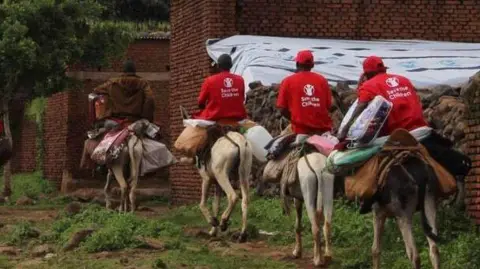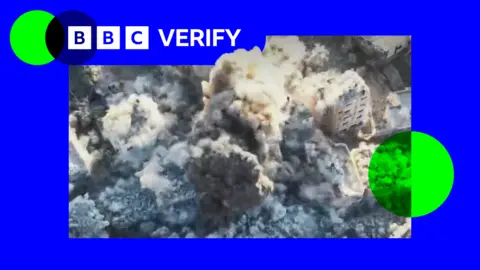Aid workers on donkeys have delivered the first humanitarian supplies to survivors of a landslide that reportedly killed hundreds of people in a remote mountain village in Sudan's western Darfur region.
Heavy rains and flash floods that hit Tarasin village triggered the disaster on Sunday and have continued, meaning donkeys are the only way to reach the affected families.
Families in Tarsin have lost everything. It took our team more than a full day on a rocky, muddy, and hilly route to reach this devastated community, said Francesco Lanino, from aid agency Save the Children.
It remains unclear how many people died. The armed group in charge of the area estimated the number at 1,000, however, the health ministry reports only two bodies have been recovered as of the latest updates.
On Thursday, local civilian leaders reported they recovered and buried the bodies of hundreds of people, with Ibrahim Suleiman, one of the local leaders, stating, We recovered 370 bodies and buried them. Others are still trapped under the rocks and some were carried away by floodwaters.
The Sudan Liberation Movement/Army (SLM/A), which controls the area, remains neutral in the ongoing civil war in Sudan. Many people have escaped to the Marra Mountains area where the landslide occurred, seeking refuge from the fighting.
According to Antoine Gérard, the UN's deputy humanitarian co-ordinator for Sudan, it is challenging to assess the scale of the disaster or the exact death toll due to tough accessibility.
On Thursday, an emergency team of 11 staff riding donkeys delivered critical supplies, including medical necessities, food, water, and tarpaulins, to affected communities—a journey that took more than six hours.
The team comprised medical staff, child protection experts, and mental health professionals, with Save the Children estimating that up to 1,000 people have been impacted.
The humanitarian situation has been described as catastrophic with urgent requests for international intervention amid ongoing challenges posed by the civil war and severe weather conditions.
As the humanitarian crisis deepens in Sudan, the International Organization for Migration (IOM) reported that about 150 people have been displaced from Tarsin and neighboring villages, now seeking shelter in nearby communities.
Heavy rains and floods have affected at least 21 areas across Sudan in recent weeks, raising concerns about disease outbreaks and prompting fears of an unusually wet season continuing into September.



















